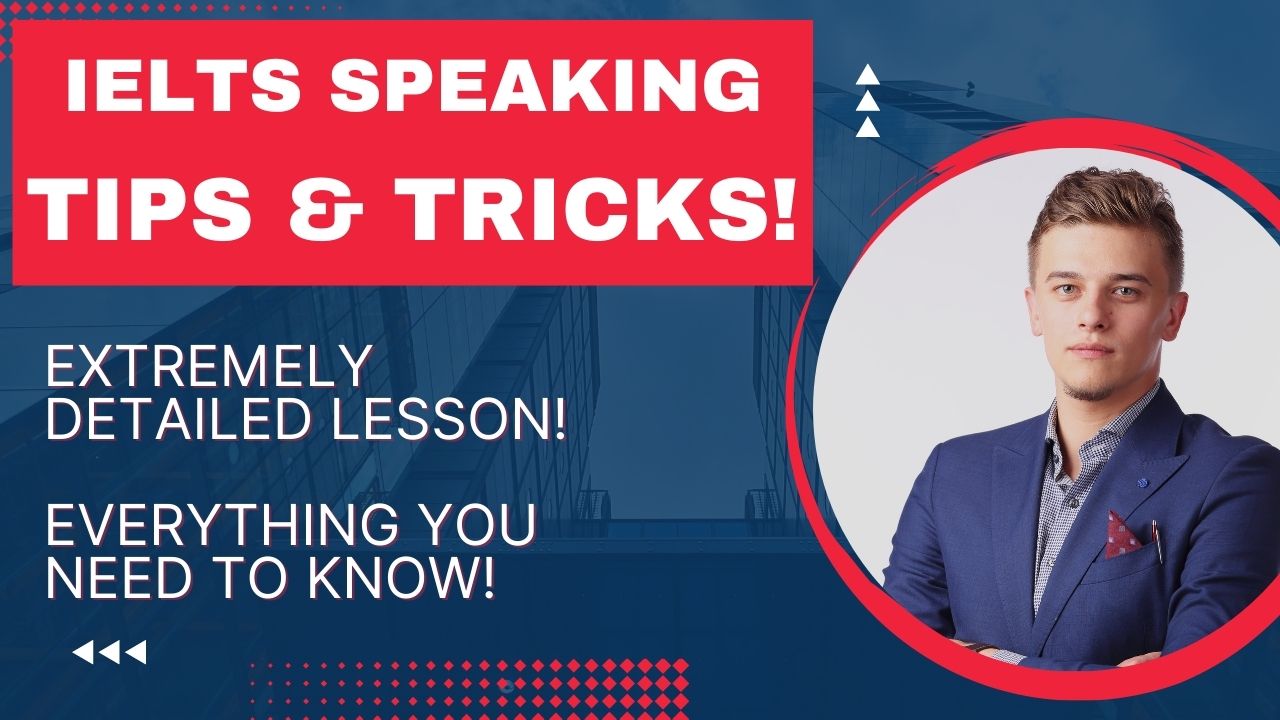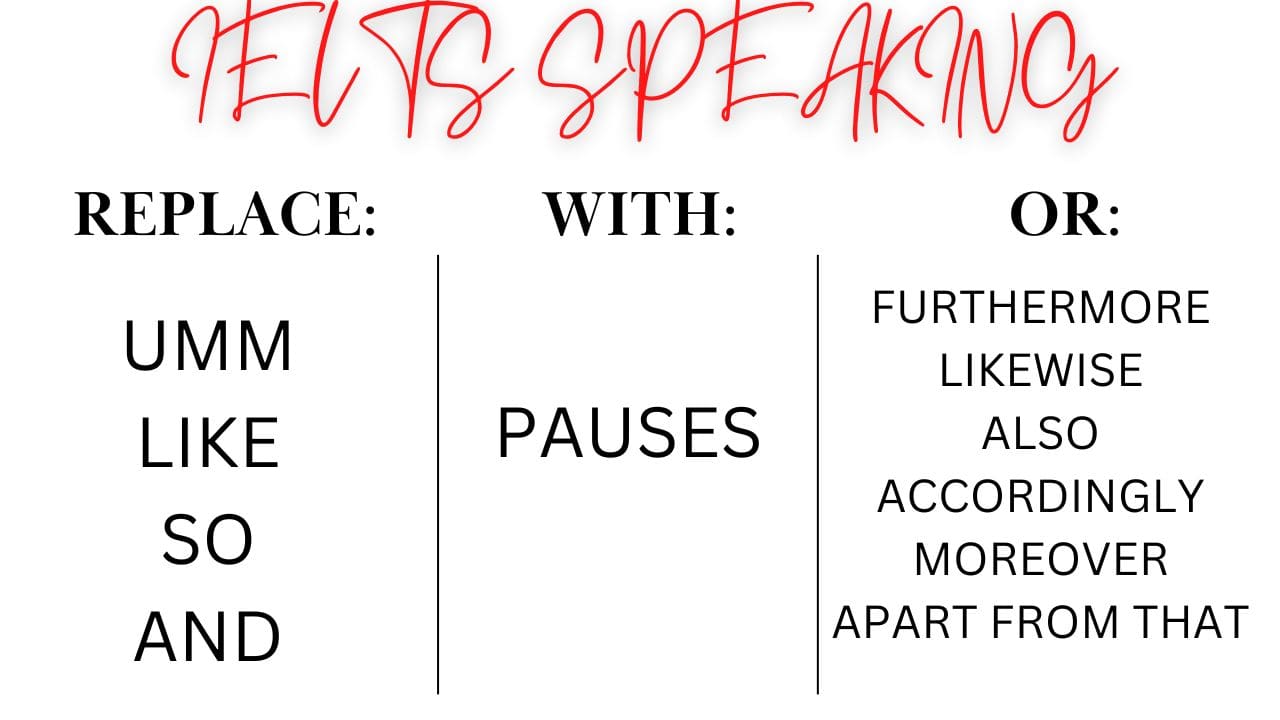The Most Important IELTS Speaking Tips & Tricks Finally Explained:
There are a few areas where students keep failing time and time again when it comes to the examiner marking scheme for IELTS. Hence, let’s explore all these areas in detail and explore the depth of IELTS Speaking Tips and Tricks!
__
VOCABULARY:
This is probably the most common area of failure for students. Basic words will destroy any chances of you getting a 7+. Make sure to use advanced and fancier words!
There are tons of words you can use but below we will highlight a quick crash course for vocabulary where you can use these words instantly for your next IELTS speaking exam.
First, let’s look at some phrasal verbs. These are combinations of two to three words. These make you sound fluent and natural since many native speakers use these. Failure to do so will make you sound average.
Here they are:
Let’s now move on to a quick lesson on INDIVIDUAL WORDS with some of the most common words you can instantly use in almost any speaking conversation. Make sure to use as many of these words as possible in your next exam!
Wanna check out the top-selling IELTS online course that delivers 7+ speaking bands for every student that buys it? What’s the secret here? Reviews and details included: https://hzadeducation.com/product/classes-ielts
Speaking Sentences (Basic to Advanced)
Expressions:
I want to emphasize that… you need to emphasize! A very common mistake is students sounding like robots when they speak! Check out my video here that explains this in more detail: https://www.youtube.com/watch?v=bv0ZAe2ZlvI&t=12s
__
You need to be able to speak naturally as if you were talking to a human being and not giving a speaking exam! Here are a few fancy expressions you can use to impress the examiner!
But can you make sure you implement the vocab you learn? Most people learn words but are never able to use them! How to avoid this? Learn here: https://hzadeducation.com/2022/11/11/top-notch-vocabulary-to-use-for-english-ielts-and-celpip/
____
Fillers:
Never ever ever ever use fillers! These are things like:
you know…
ummm
so…
like..
__
These words spell death for your marks, since it just shows you are taking long pauses to think with very basic words.
___
Take Pauses!
Wait… In the last point, I just said don’t use fillers. But I didn’t say don’t take pauses. Pauses are empty spaces between your sentences or between your main ideas where YOU SHOULDN’T SAY ANYTHING FOR A SECOND OR TWO. Think of Barack Obama. How he pauses between ideas is the gold standard that should be applied in IELTS speaking. Pauses also show that you have confidence. Speaking non-stop, on the other hand, shows nervousness.
__
Use Connectors:
Using good connectors like “Furthermore, Likewise, Moreover” is way better than using basic connectors like “and, but, so”. Using no connectors at all is the worst thing you can do! Here is our lesson on the best use of connectors: https://www.youtube.com/watch?v=XfKflCZ08V4&t=213s
__
__
Make Sure to Keep Talking:
The idea here is to explain that in the examiner marking scheme, there is a certain mark for elaboration. The more you talk, the more you score. If you talk too much, and the examiner stops you, that’s great! You don’t lose a single mark for this! But you lose marks if you speak less!
A good thumb of rule is to do 2 to 3 sentences per question in parts 1 and 3. Whereas for part 2 (cue cards), use two points per bullet point.
Define your answers as much as you can. It’s better to speak more than to speak less!
__
One final thing before you go.
An important part of your speaking exam will be how you prepare for it before going to the exam room itself. Of course, things like having proper sleep the day before, practicing with others for many weeks before your exam, using multiple practice tests to answer questions, etc. matter, and you probably already understand that.
However, what a lot of candidates ignore is using the valuable minutes right before entering the room with the examiner. When you are waiting outside the examiner’s room waiting for your name to be called, you likely have other candidates who are sitting with you. Ask them to practice with you! They will say YES a hundred times over; I guarantee you that! They desperately want the same thing you do, to pass their speaking exam.
Also, realize that this is the time when you have just completed the writing, reading, and listening test and you probably haven’t said a word for hours! This means your tongue and lips haven’t had a proper warm-up! You are not special if you do this. Every single public speaker (the good ones) or comedian, basically any expert required to go to the stage for public speaking, will do some sort of warm-up. If the experts need to do it, you need to do the same!
___
Now that you have learned these valuable tips, let’s see if you can apply them to this free IELTS Speaking Practice Test:
__
Have a go at it!
___
Part 1
__
– What is your full name?
– Where are you from?
– What is your dream job?
– What’s an unexpected problem you’ve had to face and solve on your own?
– What is your preferred University?
– What degree do you hope to earn?
__
Part 2
___
Tell me about your first experience with a college campus. You should include:
– Why you were there or around it
– What it was like
– Who you met (if any)
– When you went
– Where the campus is located
__
Part 3
__
– What does the “college experience” look like to you?
– How has college changed since a family member or someone you know
attended it?
– How can we positively influence the youth when they are in college?
– Is post-secondary education better than professional work experience?
– How can we monitor the success of education?
__
Check out our course that guarantees (with a money-back policy) that you will score over a 7: https://hzadeducation.com/product/classes-ielts/


